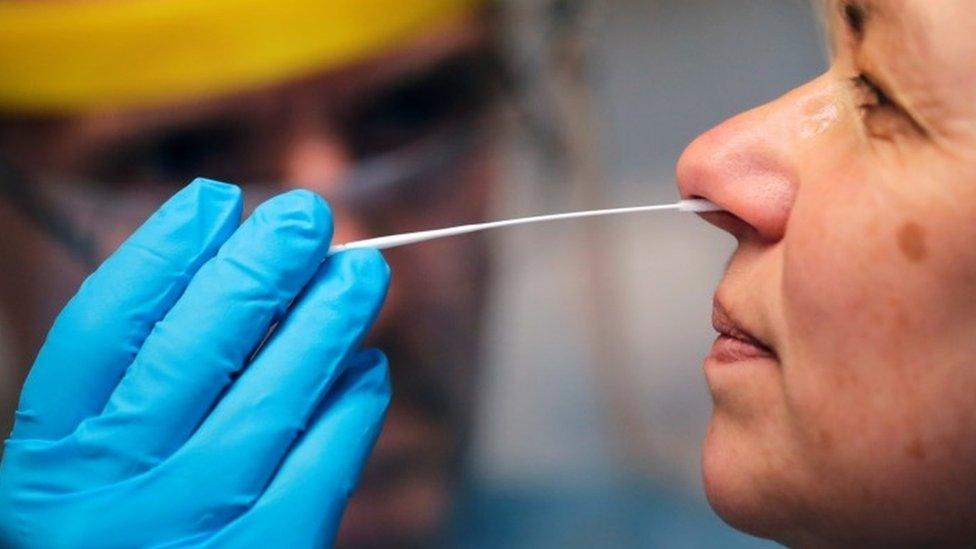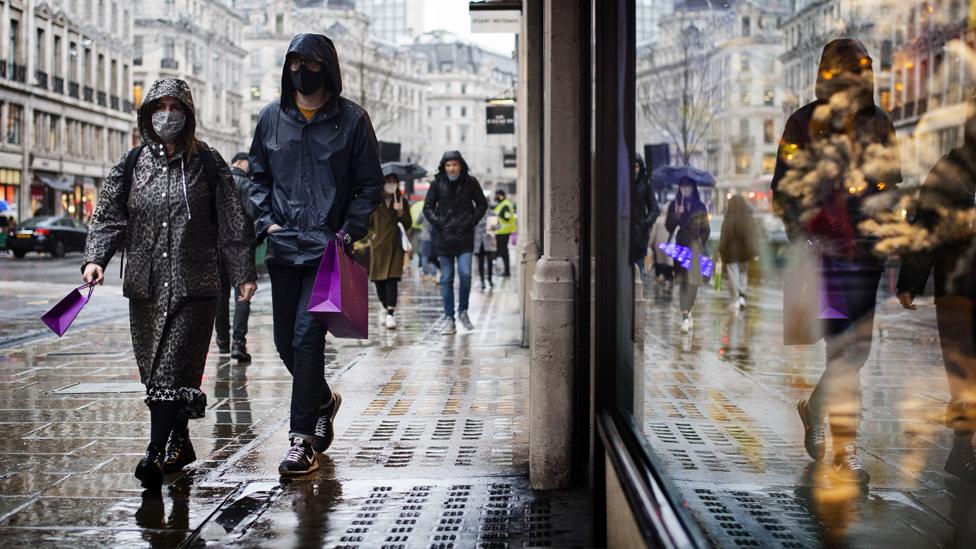Covid: Sharp rise in infections in Wales estimated
- Published

The ONS models its estimates after taking thousands of throat and nose swab tests
Covid-19 infections have risen sharply in Wales in recent weeks, according to the latest Office for National Statistics infection survey.
The ONS took throat and nose swab tests from more than 11,044 people in Wales over six weeks, external.
From the results, it can estimate 52,200 people in Wales had Covid-19 in the week to 18 December, 18,800 more than the week before.
This is one in 60 people or 1.72% of the population.
The ONS said its modelling suggested "the percentage of those testing positive has increased sharply in recent weeks in Wales".
Thousands of people in Wales agreed to have throat and nose swabs taken for the survey, which has been ongoing since the summer.


Scientists and health officials look at the results because it can give an idea how many people are infected but do not have symptoms - not just those being picked up by the usual testing regime.
Similar ONS surveys suggest cases have continued to increase in England (one in 85 people estimated to be infected), with a sharp rise in London, south east and eastern England.
In Northern Ireland it was estimated at one in 180 people - and for infections to have increased. But positivity rates in Scotland were estimated to have fallen (an estimated one in 140 people).
Local breakdowns are not possible within Wales.
Meanwhile, the "test, trace, protect" system, external for contacting people with coronavirus and tracing contacts, has seen another drop in speed in the most recent week, but it has dealt with the highest numbers so far.
Of the 18,128 positive cases were eligible for follow-up in Wales in the most recent week, 83% were reached, but only 24% within 24 hours of referral to the contact tracing system, and 45% were reached within 48 hours - both worsening response times.
This equates to 45% of those successfully reached being reached within 24 hours and 54% within 48 hours.
Of the 33,498 close contacts that were eligible for follow-up, 54% were reached within 24 hours of being identified by a positive case, more than the previous week (47%).
Related topics
- Published24 December 2020

- Published28 May 2024
